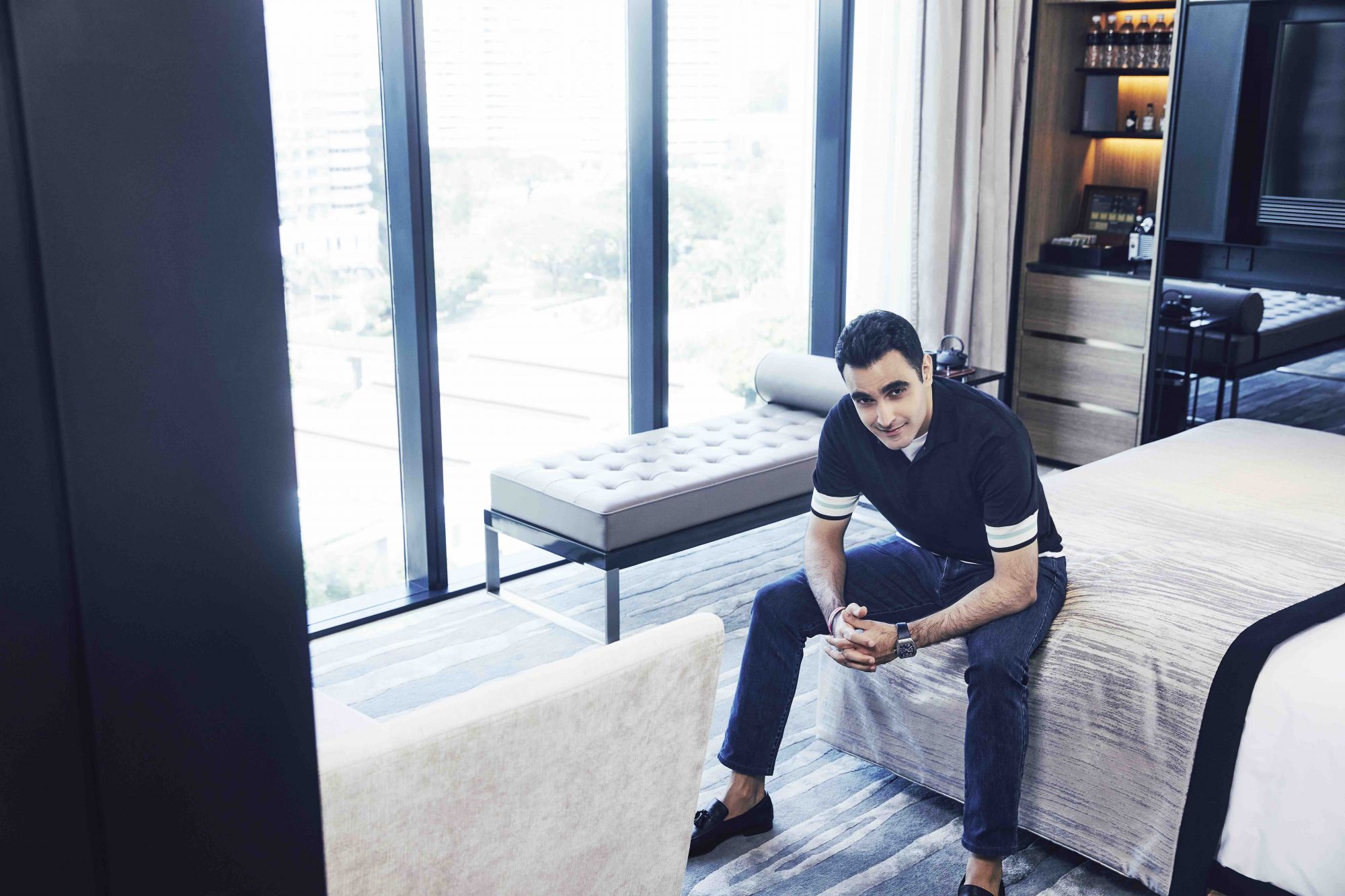The property developer shares the story behind Robertson Quay's transformation and explains how he hones his eye for untapped opportunities, even as he is eyeing what to venture into next.
Defunct nightclubs may not inspire as much melancholia as other heritage sites at risk of disappearing, but these markers of Singapore’s more ephemeral history can nevertheless induce a twinge of nostalgia for communally misspent youth. From the late 1990s to the mid-noughties, Robertson Quay was party central for clubbers, home to several pioneering nightlife concepts. These days, however, the area grooves to a different beat.
The InterContinental Singapore Robertson Quay opened last October, and is part of the 120,000sqft Quayside at Robertson Quay development spearheaded by RB Capital Group. Chatting with the company’s founder and CEO Kishin RK one morning in the InterContinental penthouse, we ask how the neighbourhood’s nightlife heritage factored into the conceptualisation of the area’s rejuvenation.
(Related: "I’m Just Not That Interested In Growing An ‘Empire’," Says Unlisted Collection's Loh Lik Peng)

The 35-year-old has a reputation for being utterly fascinated by every facet of the real estate business, and his well‑considered answer certainly lives up to that reputation. For him, the key to success here lies in looking forward rather than backward. “Robertson Quay has gone through a very interesting journey,” he says. “It used to have many warehouses, then it moved towards an era where it was known for its nightclubs. Then, there was a transformation again when there were many residential plots tendered out. That brought an influx of residents and the nightlife positioning didn’t sit well with them. So from 2010 to 2013, this area went through a little bit of a lull period, or what I call an identity crisis.”
Caught in this transition from an unruly bacchanalia to a more serene style of waterfront living, the newly sedate neighbourhood presented a great opportunity for a developer with a clear vision of what a vibrant Robertson Quay could look like in this new chapter of its story. “We started looking at this area in 2011, 2012, because we saw the potential. It was ripe for a transformation,” says Kishin.
“There was a strong captive audience in this area—residents from not just Robertson Quay, but also River Valley, Kim Yam Road and St Thomas Walk. This catchment area has many expatriates and young families, and the average age of the adult residents is mid to late 30s. And there was nothing exciting at the time, in terms of lifestyle offerings that catered to them. That’s the reason we came in.”
(Related: Meet Ashish Mancharam, The Man Breathing New Life Into Heritage Buildings)
To make sure RB Capital understood these target consumers well, a team was formed to start initiating conversations with residents. From this legwork, clear demand patterns emerged. Many residents talked about wanting a place where they could work remotely—that is one reason Quayside is now home to private members’ club 1880, which includes a co-working space. For dining, residents wanted fine casual options that are child- and pet-friendly. “From there, we could start to understand exactly how to curate that experience for them,” Kishin explains. “All the restaurants at Quayside are not intimidating in terms of design, approach, service, and pricing. What we are trying to do is move from that typical landlord-tenant relationship to a landlord-consumer relationship. We went from a B2B to B2C model.”




